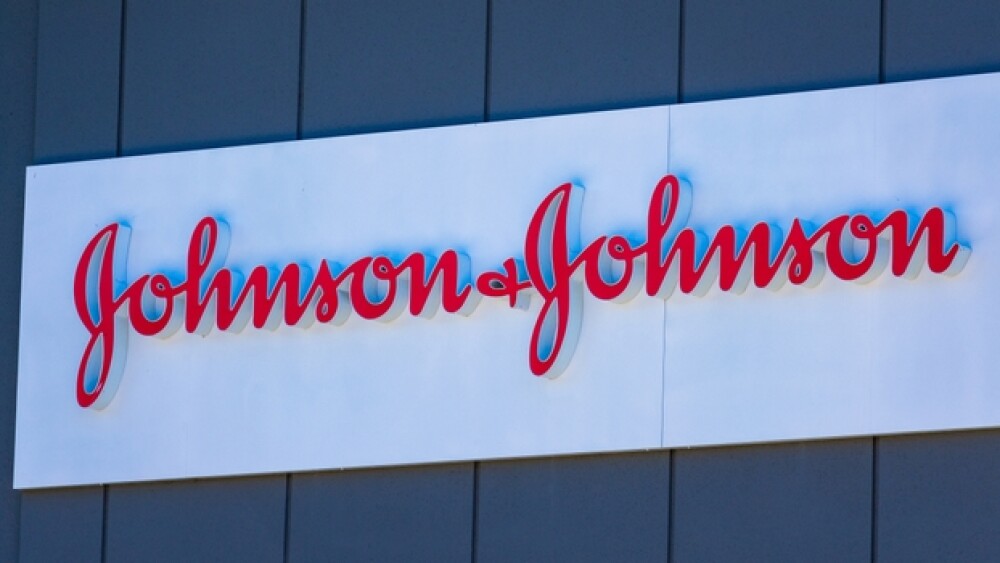The leaked data show that Carvykti cuts the risk of disease relapse by 74% versus standard chemotherapy regimens.
Pictured: Johnson&Johnson sign on building/Courtesy Getty Images, Michael Vi
Update (April 20): Following the data leak, Legend Biotech announced that it has raised $200 million from private investors buying stock, Endpoints News reported. A spokesperson from the company told Endpoints that Legend will sell 7.7 million shares at $26.12 a piece.
Leaked data from the Phase III CARTITUDE-4 trial showed Johnson & Johnson and Legend Biotech’s Carvykti (ciltacabtagene autoleucel) performed much better than expected in patients with multiple myeloma (MM), according to reporting by STAT News.
Patients treated with CAR-T therapy saw a 74% drop in the risk of disease progression compared to standard treatment. If approved in this indication, such a strong magnitude of effect could convince doctors to prescribe Carvykti as an earlier line of intervention, according to STAT.
In reaction to the leak, Legend’s shares jumped 18% during pre-market trading Wednesday.
Brian Kenney, J&J’s Cross-Sector Oncology communication leader, told BioSpace via email he couldn’t confirm the data until it’s made public in meetings scheduled for May 11 (European Hematology Association) and May 25 (American Society of Clinical Oncology), respectively.
In January, the pharma partners announced that an Independent Data Monitoring Committee recommended unblinding CARTITUDE-4 after Carvykti met its primary endpoint but provided no specific data to substantiate this conclusion.
CARTITUDE-4 is a randomized Phase III trial assessing the safety and efficacy of Carvykti in 419 patients with relapsed and lenalidomide-refractory MM. Standard chemotherapy regimens, such pomalidomide, bortezomib and dexamethasone, or daratumumab, pomalidomide and dexamethasone, were used as comparators.
According to STAT, Carvykti cut death risk by 22% relative to standard chemotherapy, though this effect was not statistically significant.
As for safety, STAT reported serious adverse events in 97% of Carvykti-treated patients, including 76% with immune-related side effects. There were no data regarding treatment-related deaths.
Using T-cells taken from the patients, Carvykti is an autologous immunotherapy that genetically modifies T-cells to encode for CAR-Ts. These receptors seek out and bind the BCMA protein, commonly found on the surface of multiple myeloma cells. In turn, this activates T-cells and promotes their antitumor activity.
Carvykti was first approved in March 2022 to treat patients with relapsed or refractory MM who had undergone and failed four or more prior lines of therapy. The same year, J&J also won the FDA’s nod for Tecvayli (teclistamab-cqyv), another MM treatment in heavily pretreated adult patients.
The leaked data may help Carvykti maintain its edge over Bristol Myers Squibb’s and 2seventy bio’s Abcema (idecabtagene vicleucel), one of its competitors and fellow BCMA CAR-T therapy. Last month, Abcema aced the Phase III KarMMa-3 study, inducing a 51% drop in the risk of disease progression or death, as compared with standard regimens.
Tristan Manalac is an independent science writer based in metro Manila, Philippines. He can be reached at tristan@tristanmanalac.com or tristan.manalac@biospace.com






